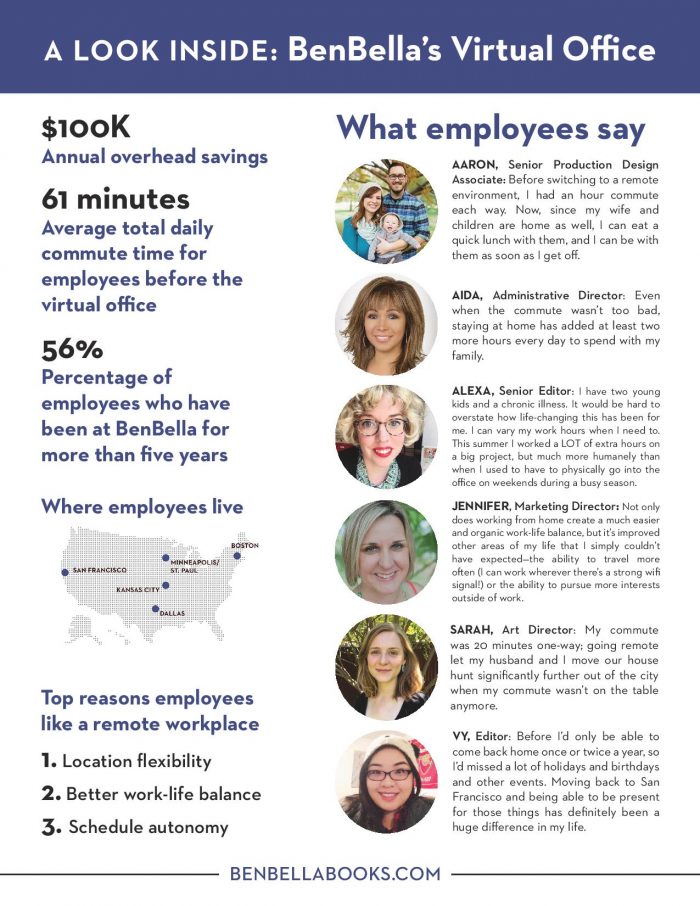How One Small Business Is Making Remote Operations Work in a Traditional Industry
With increased connectivity in our digital, mobile society and gig economy, more and more companies and organizations are offering employees the benefits of working from home on occasion―to take a sick child to the doctor or be available for the ever-late service technician.
But in recent years, a growing number of small- to mid-sized operations are pulling the traditional office plug completely. FlexJobs reports via the Global Workplace Analytics that telecommuting has grown 103 percent since 2005.
One Dallas company, BenBella Books, is in a very traditional industry and has successfully made the switch. Established in 2003, BenBella, a boutique trade book publisher, has published 14 New York Times bestsellers and has been twice named by Publishers Weekly, a prominent trade publication, as one of the country’s fastest growing presses. With a reputation for being on the cutting edge of book publishing and marketing trends, BenBella has now stepped out of a traditional industry as a leader in another business trend―the virtual office.
“The biggest fear was that having everyone working remotely would mean losing control of the organization, but that fear was based on the illusion we were somehow in control because everyone was in the same building,” says publisher and founder Glenn Yeffeth. “In reality, we have a team of highly responsible staff that were managing themselves quite well. Allowing them to work from home and to have more flexibility in their day only increased their effectiveness.”
With 16 full-time staff members scattered from coast to coast―from San Francisco to Dallas to Boston―employees enjoy the flexibility of freelance work with the stability of a full-time position.
That said, BenBella’s virtual office also changes hiring practices, allowing the company to choose from a national pool of talent and select the best of the best. Recently the editorial department filled a senior-level position through a nationwide search that resulted in over 400 applicants, over ten times the average number of respondents for a Dallas-based job.
“The primary goal was to allow our staff the flexibility to work anywhere they needed to live and to allow us to recruit staff anywhere in the country,” says Yeffeth. “Secondary goals were to improve the lifestyle, retention, and satisfaction of the staff and reduce our fixed costs. All of these goals have been accomplished.”
The transition away from the office has happened fairly seamlessly thanks to increasing accessibility to co-working hot spots, cloud functionality, and easy-to-use videoconferencing. BenBella’s departments meet via Google Hangouts on a regular basis, and the company gathers in the big D on an annual basis. Local employees also try to meet in person to cowork whenever possible, and staff participate in virtual happy hours and book clubs in an attempt to build the camaraderie and rapport that traditional workspaces provide.
After shutting the traditional office doors in August 2016, BenBella has gone on to have the most successful year in some time, according to Yeffeth. And while he also says it’s difficult to pin down financial benefits beyond overhead savings, estimated at around $100,000 annually, Yeffeth believes that a remote workplace will help BenBella retain and satisfy staff long term.
“BenBella has always been a firm where strong performers tend to stay for a long time,” says Yeffeth. “And since working remotely, virtually all employees report being happier and better able to deal with the various issues of life in ways that are actually less disruptive to their work. I believe going virtual will allow us to be even better at retaining our staff through the various phases of their lives.”
Find a Home-Based Business to Start-Up >>> Hundreds of Business Listings.


















































